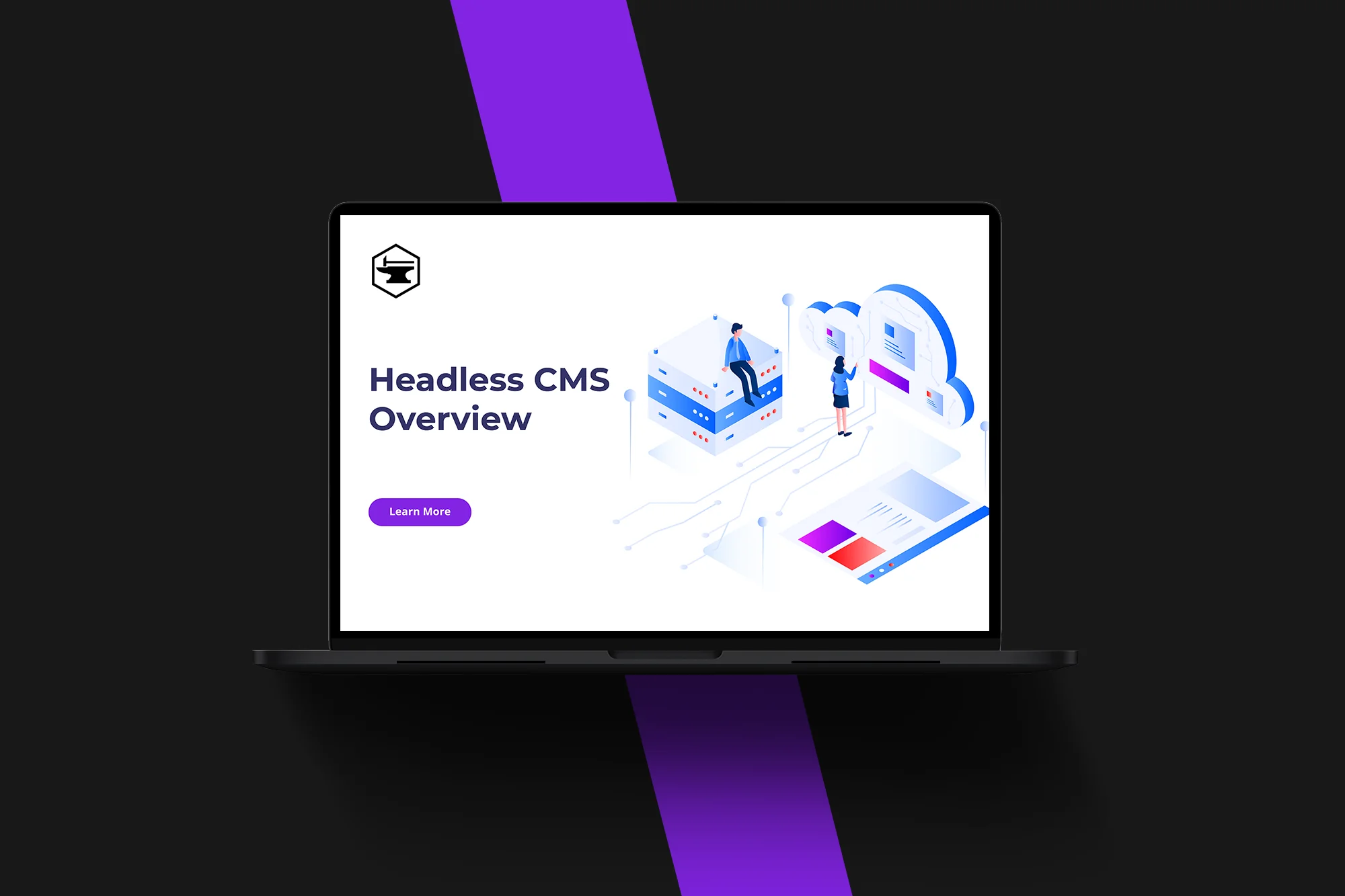Headless CMS sounds like an odd term and may confuse plenty of people who haven’t kept up with the latest trends in content management. The term refers to an increasingly popular concept in CMS design. According to ResearchAndMarket.com, the market for headless CMS software totaled $328 million in 2021 and could increase about five times to over $1.6 billion by 2027.
Find out how a headless CMS compares to a traditional CMS and why these non-traditional content management systems have gained momentum.
What is a Headless CMS?
To understand headless CMS development, it helps to contrast it with traditional CMS systems:
- Traditional CMS: A traditional content management system, or CMS, offers the convenience of building websites without needing to do much or any coding. These systems provide users with the database, frontend, and backend all in one package. Most people with any familiarity with website development have heard of some of the most popular CMS systems, including WordPress, Joomla, Drupal, and Wix. Both kinds of CMS systems make website building accessible and more manageable for countless individuals and businesses when compared to developing every aspect of a site from scratch.
- Headless CMS: In contrast to a traditional CMS, a headless CMS only offers a backend content management system. Developers can create frontends with their preferred technology. Some examples of frontend development choices could include frameworks like Angular and React or static site generators like Gatsby and Nuxt.js. Examples of headless CMS systems to handle the backend include Contentful, StoryBlok, Strapi, Butter CMS, and Sanity.
Because a headless CMS breaks up the frontend and backend, the two parts communicate with each other through an API, or application programming interface. In comparison, the backend and frontend of a traditional CMS communicate with each other by passing variables.
Benefits of Headless CMS Development
Plenty of organizations or individual projects can benefit from the benefits of headless CMS development.
For instance:
- Flexible delivery of content: A traditional CMS delivers content to a web browser. Developers can use a headless CMS to develop native web apps, websites, or even such other digital devices as billboards and TV apps.
- Control over security: A headless CMS gives developers more control over security without having to wait for CMS support to release updates.
- Future-proof development efforts: Traditional CMS systems tend to lag behind the latest developments. As with security, controlling the frontend means developers don’t need to wait for their CMS to evolve.
- Choice of design language: Instead of feeling locked into the CMS’s stack, developers can choose their programming language or framework. For projects that would require heavy customization, this will save time.
- Use of content-based architecture: A headless CMS can use, reuse, and recombine content in endless ways that may satisfy the needs of various applications, presentations, or devices.
Should Web Developers Choose a Traditional CMS or a Headless CMS?
Plenty of web developers will probably still choose traditional CMS systems for a long time. CMS systems like WordPress and Wix do a good job of balancing simplicity and flexibility. Plus, so many legacy systems use a traditional CMS that many organizations will not care to budget for an upgrade to a headless CMS.
The ResearchAndMarket.com study found that larger enterprises drove most of the current growth of headless CMS development. The best choice of any CMS or type of CMS may depend upon project requirements and available skillsets. As headless CMS development grows more mainstream and the uses for digital media continue to evolve, headless CMS systems will probably emerge in more SMBs.
Discuss Headless CMS Development With Experienced Pros
Here at Temper and Forge, our experience covers both traditional and headless CMS design and development. Our deep knowledge of the pros and cons of either choice for various types of companies lets us share insights with the companies that we serve. Contact us today to discuss your latest project, and we can tell you what a headless CMS will offer your business.

